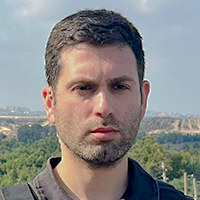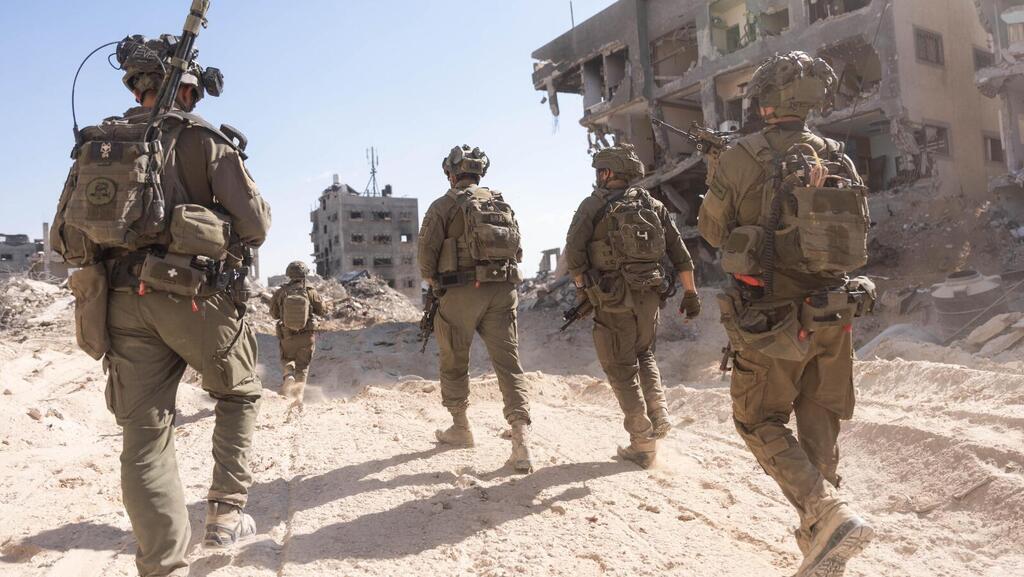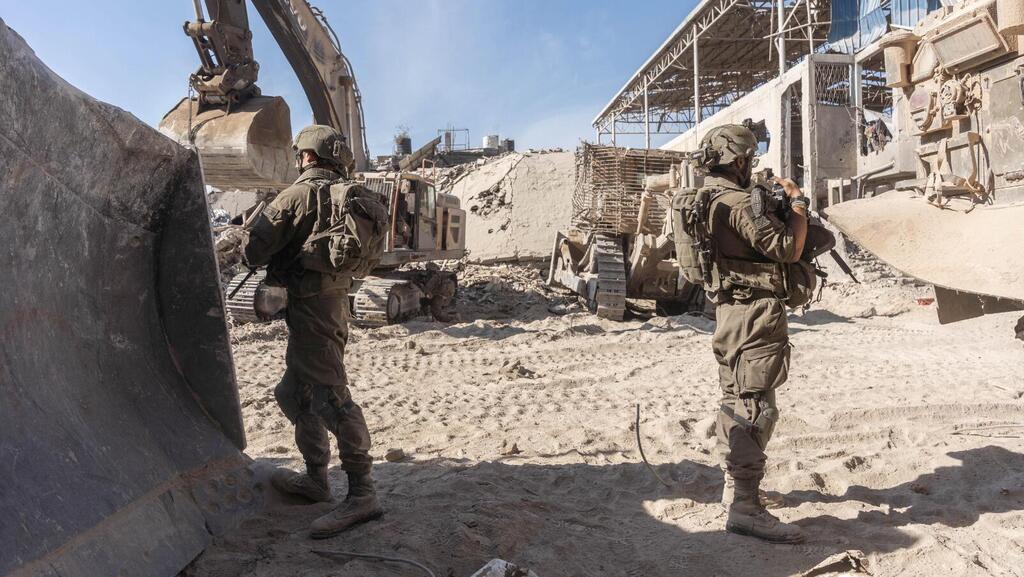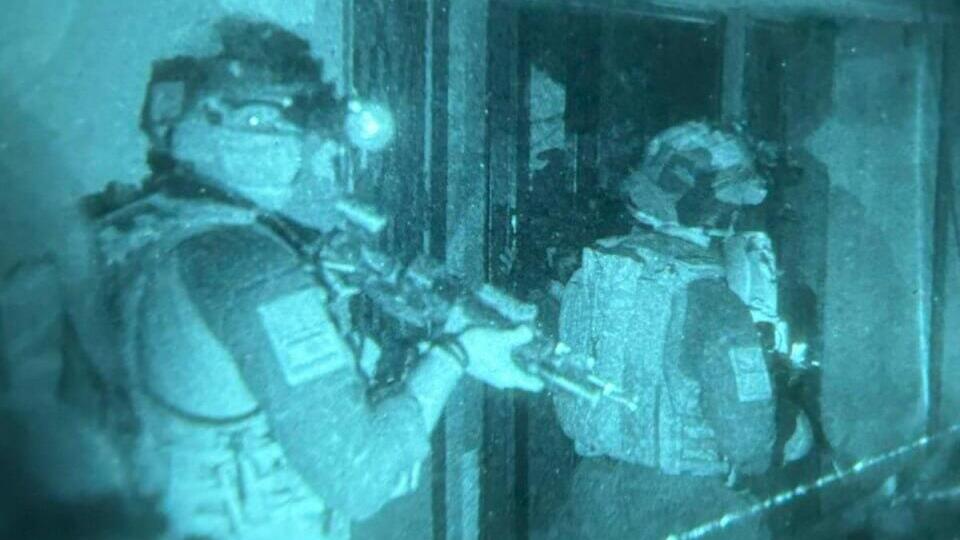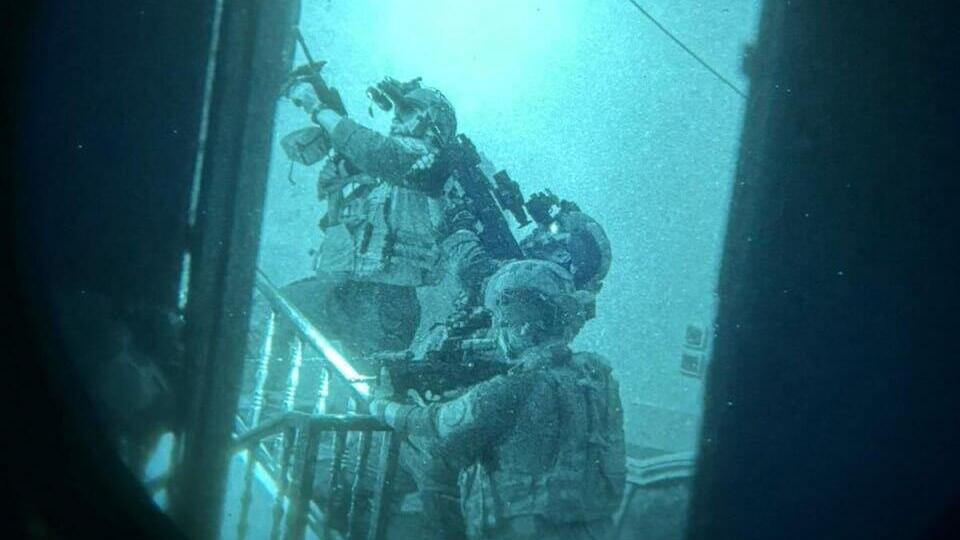Getting your Trinity Audio player ready...
The Givati Brigade’s Reconnaissance Unit successfully raided a large school complex in the heart of Gaza’s Jabaliya refugee camp, which consists of several multi-story buildings, in only three hours on Wednesday.
The operation, carried out by a little over two platoons, resulted in the arrest of about 100 Hamas terrorists and the elimination of 40 others — 22 in close-range encounters and another 18 via airstrikes — all without any casualties among the soldiers.
"Less than a year ago, we would've deployed two or three brigades over several days for a divisional-level operation in such a location. Today, it's executed by a battle-tested battalion and a half against a terrorist organization that's being systematically defeated," one of the operation's commanders told Ynet on Thursday.
The Jabaliya raid is the longest IDF operation since forces transitioned to a new operational model favoring limited incursions into Gaza, with the IDF’s active ground maneuver phase having ended approximately 10 months ago.
The raid, conducted by the 162nd Division, is now entering its third month. As anticipated early on, it's proving to be longer and different from previous operations. The reason lies in the IDF Southern Command's tactical shift: dividing the northern third of Gaza and encircling populated areas while filtering Gazan civilians fleeing southward toward Gaza City from Hamas and Islamic Jihad terrorists.
The approach faced international criticism. However, the IDF has repeatedly stressed that there were no signs of starvation in Jabaliya, Beit Lahiya or Beit Hanoun. Just this week, Jordanian troops dropped aid packages in the Palestinian enclave.
Further, Israel’s Coordinator of Government Activities in the Territories (COGAT), in cooperation with foreign bodies, held special operations to prepare humanitarian aid delivery for conflict zones. Dozens of aid trucks enter this area daily via Israel’s Erez border crossing.
Southern Command’s spearhead division estimated the raid will likely continue for several more weeks, as Jabaliya’s stronghold still houses between 100 and 200 terrorists. According to military data, 1,500 terrorists have been killed in the raid so far — a significantly higher figure than in comparable raids or divisional attacks during the ground operation’s first phase.
The data also reveals that approximately 1,200 terrorists have been captured and interrogated, with intelligence from these interrogations directly supporting the soldiers' progress in real-time.
This intelligence provides new targets, locations of explosives and even the positions of combat tunnels still present in Gaza. Some of these interrogations take place in the field, conducted by Unit 504 investigators and Shin Bet agents.
During Wednesday night’s raid, field investigators identified several Hamas company and platoon commanders among the detainees, who surrendered without resistance.
“We’re not reaching levels seen in the West Bank yet. We’re facing anti-tank fire and significant explosives, but the forces are learning from the extensive experience they’re gaining as time passes,” the IDF said.
“We’re achieving greater operational efficiency with fewer troops and are getting closer to fully defeating Jabaliya,” it added. In the past 48 hours alone, 80 terrorists have been eliminated and the IDF has managed to drive about 75,000 Gazans southward throughout the operation.
The high numbers from Wednesday night’s operation were largely due to the forces’ surprising and deceptive maneuvers, as well as progress made by Kfir Brigade troops in Beit Lahia, marking the young infantry brigade’s most significant test to date.
Get the Ynetnews app on your smartphone: Google Play: https://bit.ly/4eJ37pE | Apple App Store: https://bit.ly/3ZL7iNv
The raid has so far involved around 1,500 airstrikes, some conducted during a period when the IDF had shifted its primary focus to Lebanon and had fewer aircraft available for operations in Gaza.
“Our goal is to provide complete safety to the residents of Netiv HaAsara, near Beit Lahia, or to the residents of Sderot, who can see Jabaliya from their balconies. Even if it’s challenging and will take more time, it’s being done thoroughly, systematically and methodically,” the IDF stressed.



